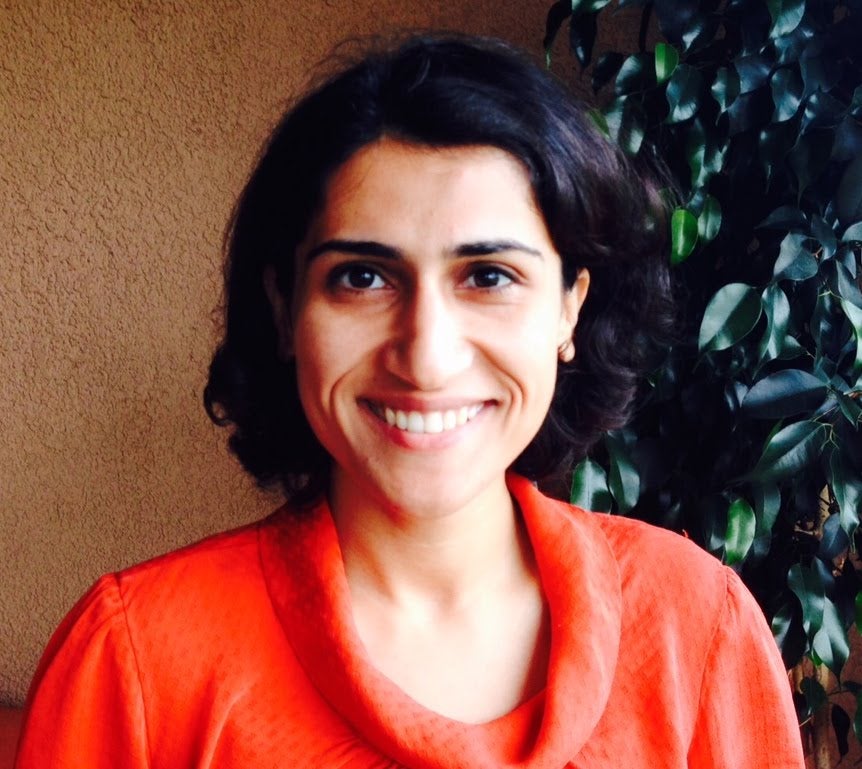
‘Motivation and Guidance’

Diba Mirza, an associate teaching professor of computer science at UC Santa Barbara, has received the Mentoring Award for Undergraduate Research (MAUR) from the National Center for Women and Information Technology (NCWIT). The national award recognizes four faculty each year who have demonstrated outstanding mentorship by providing high-quality research opportunities to students, recruiting women and other underrepresented students, and encouraging and advancing undergraduates in computing-related fields.
“The MAUR is very prestigious, and I am very honored to receive it,” said Mirza, who joined the faculty in 2016. “The award serves as a reminder to continue my commitment to students and carve out time every week to mentor them. It also celebrates the computer science department’s success in supporting undergraduate research and the collaborative culture that makes such efforts possible.”
NCWIT commended Mirza for starting the Early Research Scholars Program (ERSP) at UC Santa Barbara. Supported by a five-year grant from the National Science Foundation, the year-long research apprenticeship program helps undergraduates, especially women and underrepresented students, gain foundational knowledge and skills for engaging in research in the discipline. Students work with computer science faculty members on a project that ties into the faculty member’s research area. ERSP was originally developed at UC San Diego, where Mirza worked prior to teaching at UCSB. She was able not only to institutionalize the successful model at UCSB, but also help her department meet its goal of increasing support for undergraduate research.
“The project excited me in several ways because it created the opportunity to mentor undergraduates in their first research project, develop long-term collaboration across multiple partner institutions, study the impact of early research, and collaborate with colleagues and graduate students within our department to implement the program,” said Mirza, who previously received the 2020 UCSB Academic Senate Distinguished Teaching Award. “When students engage in research, they are challenged all the time. Without proper support and mentoring, it is easy for students to give up, particularly those who feel like they don’t belong in the mainstream community of computer science. That effect perpetuates existing inequities in our discipline. My main goal is to reverse this effect by normalizing the challenges of research for new students.”
ERSP, which launched in 2018, and is already producing results. According to Mirza, the program has had no attrition, more than 50% of students have been women and 20% have been from traditionally underrepresented groups. Three student teams have published a total of four first-author papers at peer-reviewed conferences in natural language processing and computer architecture. In addition, 42% of students who completed ERSP have remained actively involved in research and applied to graduate school or expressed an intention to do so.
“I credit the success of ERSP to Professor Mirza’s exceptional mentoring skills and effort,” said Tevfik Bultan, chair of the computer science department and an ERSP research advisor. “Professor Mirza recruits a diverse group of undergraduate students to ERSP and provides incredible mentorship that enables them to take on challenging research projects. She very much deserves this recognition for mentoring, and I am very proud to be her colleague.”
Mirza thanked Bultan and professor Elizabeth Belding, noting that their efforts and strong support of diversity and undergraduate research have helped the department make notable strides. She also thanked the numerous faculty and graduate students who helped launch and sustain ERSP, and mentor students. As further evidence of the program’s impact, ERSP students have received the department’s Outstanding Undergraduate Research Award the past two years. The 2020 recipients, Andrew Gaut and Tony Sun, both of whom worked on a research project with assistant professor William Wang, were finalists for a prestigious national honor, the Computing Research Association’s Excellence in Undergraduate Research Award.
The NCWIT also commended Mirza for teaching an undergraduate research methods course, mentoring nearly thirty students, and organizing an annual student research showcase. Mirza said that she enjoys working with the exceptional undergraduates in computing at UCSB and feels invested in their success.
“Mentoring is a powerful way of helping students see themselves in a new light and prepare them for life beyond UCSB,” said Mirza, who was selected by graduating seniors as the computer science department’s Faculty of the Year in 2018-19 and 2019-20. “It’s also a great way to build the kind of community and culture we can collectively be proud of. Mentors and role models have played an important role in my career, and it’s my way of paying it forward. It is the best part of my job.”
Among the students mentored by Mirza through ERSP were Jacqueline Mai, who received the department’s Outstanding Undergraduate Research Award in 2019, and April Sanchez, a first-generation college student. They praised Mirza for the extraordinary amount of effort she puts into supporting undergraduates, particularly women and underrepresented minorities.
“I cannot think of anyone more deserving of this award than Professor Mirza. She was my first computer science professor and had a profound impact on me from the very beginning,” said Sanchez, who is enrolled in the department’s five-year bachelor’s and master’s degree program. “I think it’s so important that she reaches out to underrepresented students, like myself, because no one in my family went to college and many of them didn’t understand what I meant when I said I studied computer science. I wasn’t aware of graduate school, how to apply, or if it was even something I wanted to do. I didn’t even understand what imposter syndrome was. All I knew was that it was some unnamed feeling that I struggled with being a woman in computer science. Professor Mirza gave me the clarity, motivation and guidance that I needed to succeed.”
Sanchez says that Mirza kept her motivated, and provided advice and encouragement. She credits the skills she learned in ERSP for helping her obtain internships at Google the past two summers and secure a research project on security this spring with computer science Professor Giovanni Vigna.
“She showed me that I can hold my own and thrive in a field that I’d heard was unwelcoming toward women and people of color,” said Sanchez, who hopes to join Google as a full-time software engineer after she completes her master’s degree next June.
Mai echoed Sanchez’s sentiments, saying that Mirza helped set her on a path to success. She earned her bachelor’s degree last year and will complete her master’s degree in computer science this June.
“Professor Mirza has provided me with so much valuable advice and support throughout my time as an undergraduate,” said Mai, who after completing the ERSP participated in multiple research projects focused on programming languages and computer architecture in labs on campus. “Through ERSP, I learned how to conduct a research project and publish a paper. I attended conferences, networked with other researchers and gained confidence that I belonged in computer science.”
For winning, Mirza is featured on NCWIT’s MAUR website and will receive a $5,000 gift to cover research expenses. NCWIT is the only national non-profit focused on women’s participation in computing, helping 1,400 organizations recruit, retain and advance women from higher education through industry and entrepreneurial careers by providing support, evidence, and action.
Zoë Wood, a recent addition to the department, received the MAUR in 2018 while teaching at Cal Poly, San Luis Obispo.



